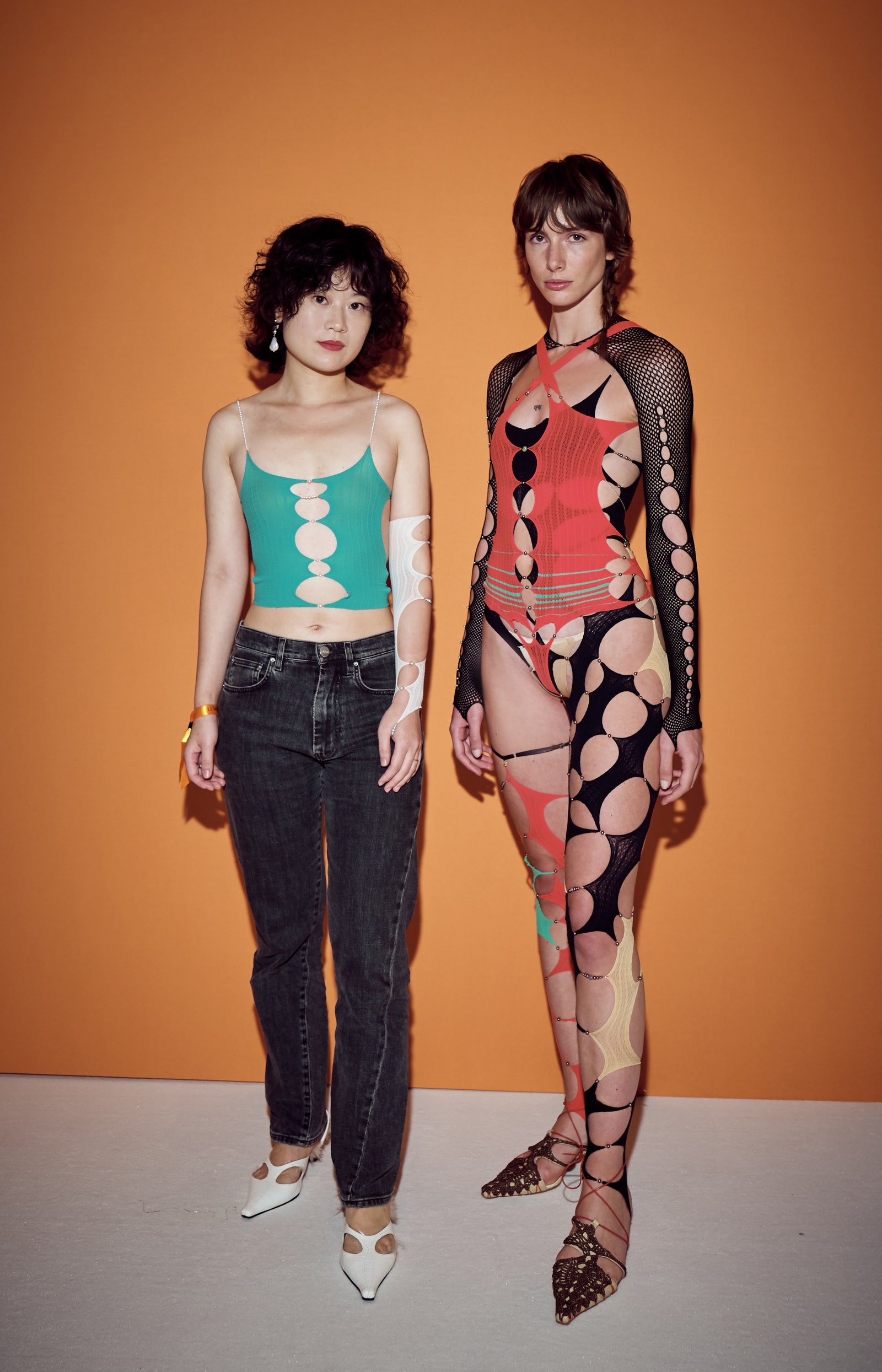It seems like everyone with a foot in fashion has an award these days, but the crown jewel is indisputably still the LVMH Prize, which the conglomerate awards annually to up
and coming designers with a level of ceremony that is tantamount to an anointment. The jury has a record of spotting stars—Grace Wales Bonner, Marine Serre, Hood By Air, and Jacquemus are all past winners. And it’s not just a trophy: the 300,000 euros for the grand prize winner, plus a year of mentorship from LVMH, have helped form a new generation of icons in an industry that can be unsparing to young talent.
The winners of this year’s edition were announced on Tuesday morning. Twenty-seven-year-old Nensi Dojaka, an Albanian womenswear designer based in London, took home the grand prize. The Karl Lagerfeld Prize, a special prize renamed for the late Chanel designer in 2019, was shared by three winners: the American designer Colm Dillane, who designs streetwear-ish women’s and menswear under the name Kidsuper; Lukhanyo Mdingi, a South African designer of graceful men’s and women’s clothes; and RUI’s Rui Zhou, a Shanghai-based designer of freaky genderless experiments in knitwear. Those three designers will receive 150,000 euro and a year of mentorship, as well. All the winners are under thirty.
The Lagerfeld winners described being somewhat starstruck by the LVMH designers who serve as the prize’s jury: Kim Jones, Marc Jacobs, Virgil Abloh, and Jonathan Anderson. Lagerfeld may be one of the most legendary names in fashion, but for today’s twenty-something hopefuls, it’s this crop of designers who are the icons, especially because of the way that Jacobs and Abloh mishmashed streetwear, pop culture, and high fashion at Louis Vuitton. (Jacobs was the creative director at the house from 1997 to 2014.) When asked how success might look different today than it did for designers of Jacobs’s generation—or Lagerfeld’s, for that matter—the designers pointed resolutely to a shift in the balance of power: away from the establishment blessing and towards a fanatical fanbase.
“I think back in the day, if someone cosigned you, it made a huge difference,” said Kidsuper’s Dillane. “Now it’s all about building your own community and making sure a cosign doesn’t even matter. The press was run by people who can open and close doors. Now the press is Instagram, right? If you can build a real community yourself, that’s more important than one article. But back in the day, one article could change your life.”

